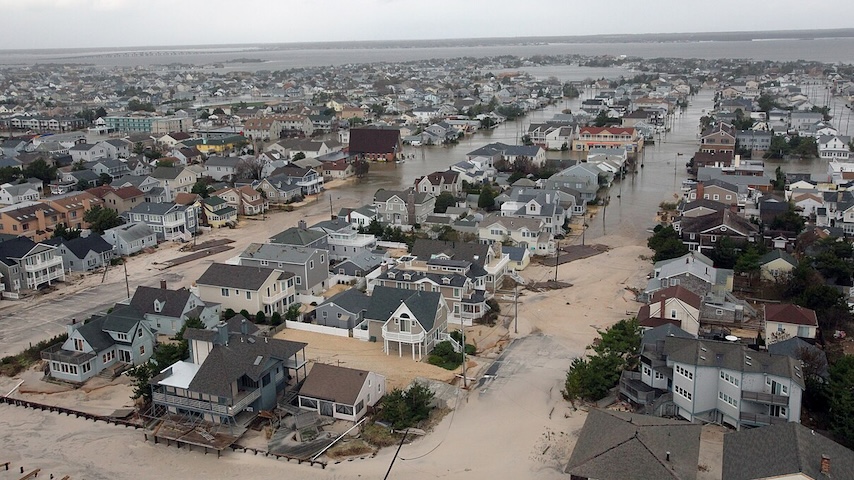ExxonMobil’s Plan to Accelerate Armageddon vs. New Jersey’s Plan to Make Them Pay For It
Photo by DVIDSHUB/Wikimedia Commons
Big Oil’s backsliding on climate and energy promises is well established by now. Whatever promises they have made on cutting output or emissions were largely worthless; they’re just more explicit about it now.
But the degree of that backsliding does have some variation among the companies out there. BP’s latest announcement was about reducing its renewables spending; ExxonMobil’s latest is about a massive increase in oil and gas output. Already the US’s biggest oil company, Exxon announced on Wednesday a plan to boost its oil and gas output by 18 percent by the end of the decade. And we’re starting from quite a baseline: the US as a whole set an all-time record, for any country, for oil output in 2024; that record will fall in 2025.
Here is a company spitting in the face of globally agreed-upon climate ambitions:
“Our steadfast commitment to strengthening these advantages, including an unwavering investment in technology, has led to a history of innovative solutions that meet society’s critical needs, reduce costs, and grow high-value products,” crowed CEO Darren Woods, in a press release. “That’s a formula for profitable growth and shareholder value through and beyond 2030 – no matter the pace and scale of the energy transition [emphasis mine] – that truly puts us in a league of our own.”
The company plans to up its investment in oil and gas to as much as $33 billion per year by 2030; it will spend $140 billion through that year, and Woods said the company expects a hefty 30 percent return on that investment. Its output in the Permian Basin, the West Texas and New Mexico oil play that is among the largest in the world, is set to triple within the next five years. It will open two new projects offshore of Guyana, the industry’s newest “major environmental risk” in the developing world.
As this catastrophic emissions bomb slowly explodes, and the world’s governments appear largely disinclined to hinder it even the slightest bit, a more localized attempt is taking shape: New Jersey, joining Vermont and other states with similar ideas, wants to impose new fees on the oil and gas industries to aid its efforts in fighting climate change.
A bill under discussion in the state senate on Thursday would create a Climate Superfund, and would charge fossil fuel producers for the damages their products cause; New Jersey, of course, is watching in real time as its shorelines erode and collapse, among plenty of other climate impacts. A number of oil companies have a footprint in the state, and their contribution to those impacts would be assessed over a two-year period before as-yet unspecified damages would then be owed to the Department of Environmental Protection, which would use the fees for adaptation projects.
The industry, of course, doesn’t like this idea. A representative of the New Jersey Business and Industry Association criticized it to the Associated Press, in comments that sound pretty similar to a letter sent by the American Petroleum Institute earlier this year regarding a similar bill in Vermont — retroactive liability, vague costs, won’t actually reduce emissions, and so on. Vermont’s legislators did not listen: they passed the bill in May. Maryland, Massachusetts, and New York have also considered similar measures; all will face substantial opposition, and, if passed, legal challenges with essentially bottomless pockets.
So: the biggest oil companies around, chucking energy transition plans out a skyscraper window, planning massive expansions of oil and gas output across the years when a rapid move away from fossil fuels is the globally agreed-upon goal; or a few states swimming through the quicksand that is the American legal and legislative system, hoping to take a small bite out of those companies’ bottom lines in an effort to better survive the spiraling impacts their products continue to unleash. Choose your fighter.